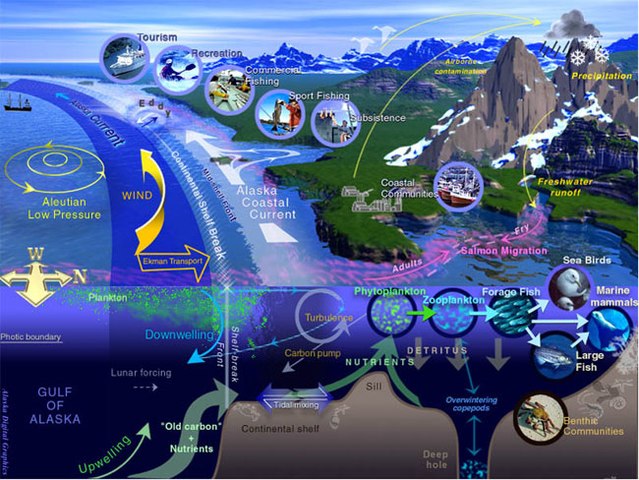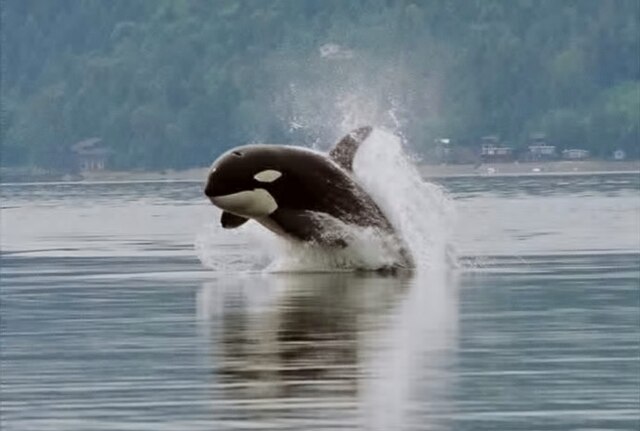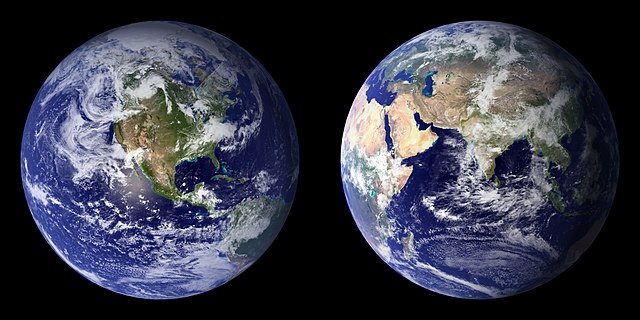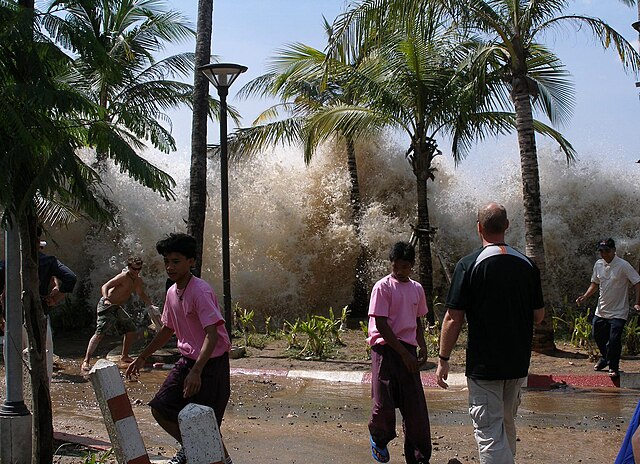Marine life, sea life, or ocean life is the plants, animals, and other organisms that live in the salt water of seas or oceans, or the brackish water of coastal estuaries. At a fundamental level, marine life affects the nature of the planet. Marine organisms, mostly microorganisms, produce oxygen and sequester carbon. Marine life, in part, shape and protect shorelines, and some marine organisms even help create new land.
General characteristics of a large marine ecosystem (Gulf of Alaska)
Killer whales (orcas) are highly visible marine apex predators that hunt many large species. But most biological activity in the ocean takes place with microscopic marine organisms that cannot be seen individually with the naked eye, such as marine bacteria and phytoplankton.
Composition of seawater. Quantities in relation to 1 kg or 1 litre of sea water.
The Earth's water cycle
A sea is a large body of salty water. There are particular seas and the sea. The sea commonly refers to the ocean, the wider body of seawater.
Particular seas are either marginal seas, second-order sections of the oceanic sea, or certain large, nearly landlocked bodies of water.
Atlantic Ocean near the Faroe Islands.
Composite images of the Earth created by NASA in 2001
The 2004 tsunami in Thailand
Praia da Marinha in Algarve, Portugal








